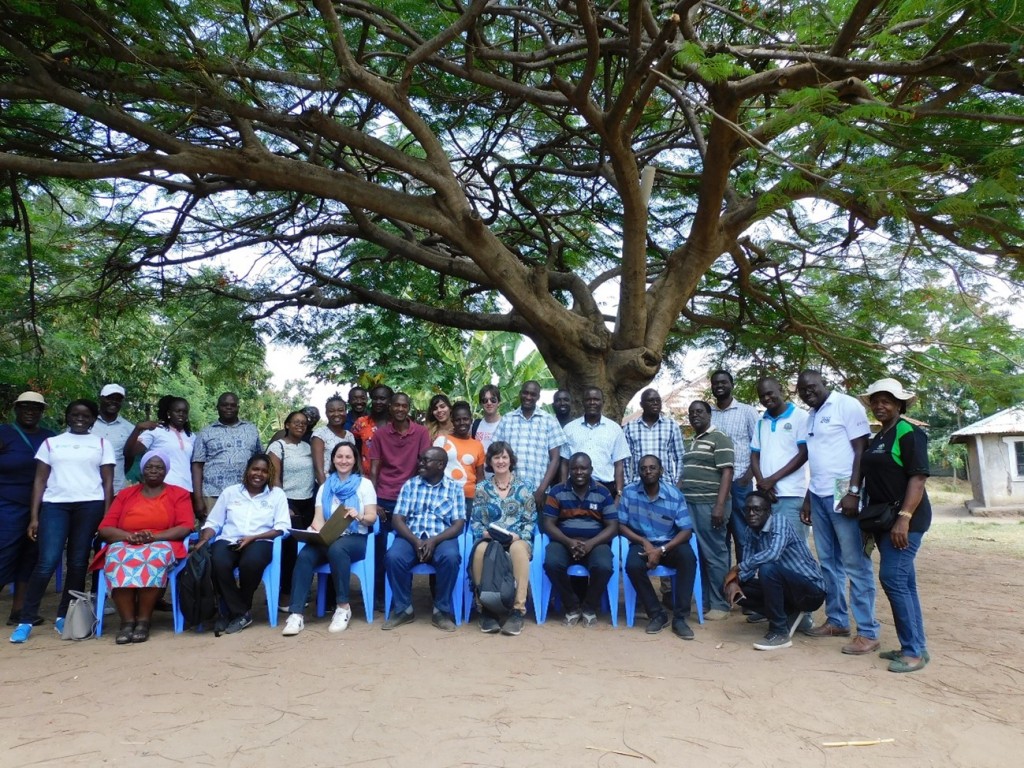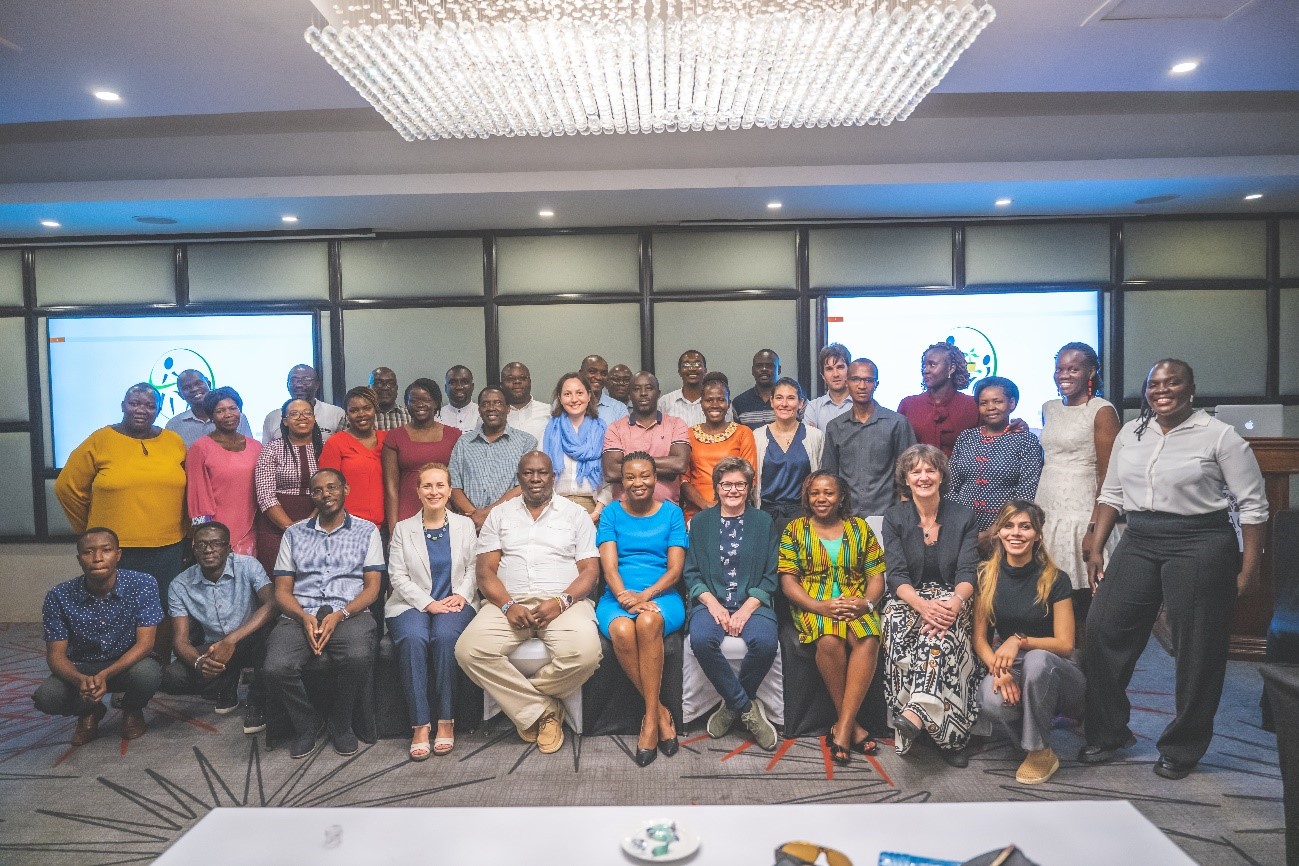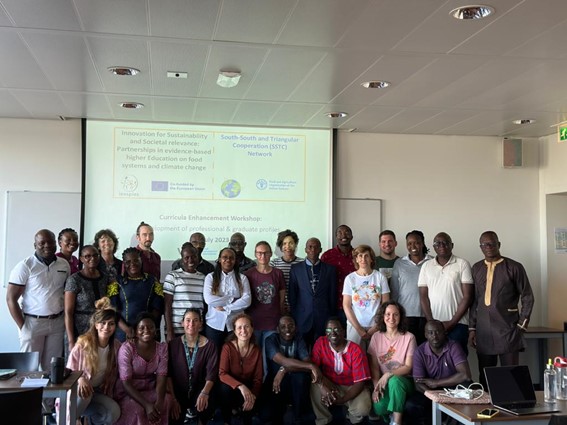27/07/2023
The URV participates in a project that brings together evidence-based education for climate-resilient food systems in Africa
INSSPIRE is a new Erasmus+ Capacity Building project

INSSPIRE is a new Erasmus+ Capacity Building project
Climate change is one of the greatest threats for the future of our planet. The effects are increasingly evident in different sectors and regions worldwide, but particularly for food systems in Africa the impact of climate change is already significant. Food systems in Africa have been growing rapidly, largely driven by population growth, and increasing urbanization. The growth, however, has been mostly in an unsustainable manner, with negative consequences for both the environment and human health. Therefore, there is an urgent need to strengthen the sustainability of Africa’s food systems and adapt them to climate change.
Higher education plays a vital role in equipping future leaders with the knowledge, tools, and skills needed to strengthen the sustainability of Africa’s food systems. Through interdisciplinary and evidence-based learning, higher education institutions can contribute by delivering graduates who are able to address real-life sustainability challenges. By collaborating with different stakeholders and promoting research and innovation, higher education can help to strengthen the sustainability of Africa’s food systems and adapt them to the challenges of climate change.
INSSPIRE stimulates evidence-based inclusive education for sustainable development through building intra-university capacity, strengthening the university-community collaboration, and enhancing inter-university partnerships. It aims to develop the higher education staff capacity for the delivery of courses and modules on food systems and climate change and to equip students with skills and real-life experiences for transformation of food systems and their future labour market success.
The INSSPIRE project, funded under the Erasmus+ Capacity Building in Higher Education programme, is coordinated by the Vrije Universiteit Amsterdam (The Netherlands) and involves partner universities from Kenya (Maseno University and South Eastern Kenya University), Uganda (Mbarara University of Science and Technology and Makerere University), Slovenia (Innovation and Development Institute of the University in Ljubljana) and Spain (Universitat Rovira i Virgili). The project kicked off in February 2023 in Kisumu (Kenya) and will run for a period of three years.

The URV leads a work package on inter-university partnership and COIL (Collaborative Online International Learning) which aims to introduce innovative methodologies for inter-university cooperation, peer learning and exchange of knowledge and good practices. Besides the involvement of Marina Vives and Margareta Wessels from the I-Center, Sílvia De Lamo, Carme Güell and Montserrat Ferrando, members of the research group FoodIE (Food, Innovation & Engineering, ETSEQ) and an expert on co-creation from the FURV, Anna Maria Segarra, are involved in the project. Moreover, the URV has been granted ICM KA171 mobilities to the African universities during the period 2023-26 which will contribute to the mobility and collaboration between these universities and the URV.
More information on INSSPIRE can be found on the project website.
Workshop on curriculum enrichment around food systems and climate change
Within the project activities, the URV took part in the successful workshop on curriculum enrichment around food systems and climate change organised by the Centre for International Cooperation (CIS-VU) (8-18 July 2023). The event brought together a diverse group of academic professionals from around the world who are collaborating in this critical domain.
During the event, both students from the summer school programme led by CIS-VU “Feeding the Billions” as well as international experts holding lectures and specialised staff, highlighted the importance of interdisciplinary and collaborative efforts in addressing climate change.

Throughout the workshop, the participants made a start towards the enrichment of their curricula in the area of food systems and climate change and they engaged in meaningful discussions, exchanged valuable knowledge, and expanded their professional networks.
The workshop was part of the INSSPIRE project, coordinated by Sabina Di Prima (CIS-VU), and the FAO-funded South-South and Triangular Cooperation initiative, coordinated by Dr Denyse Snelder (CIS-VU) and it counted with contributions from Dr Carme Güell (Food Engineering- URV), Anna Maria Segarra (Real Life learning labs) and Marina Vives, who held a session as COIL expert from the URV.
